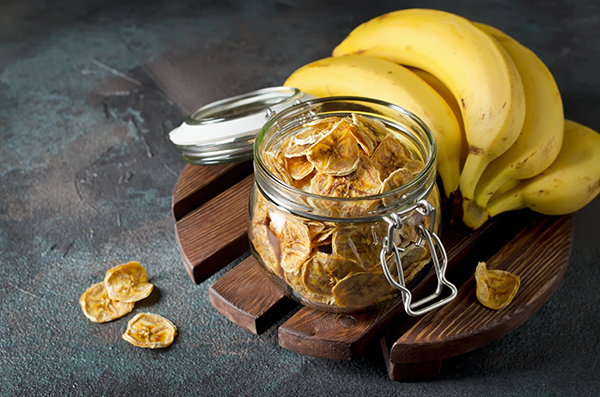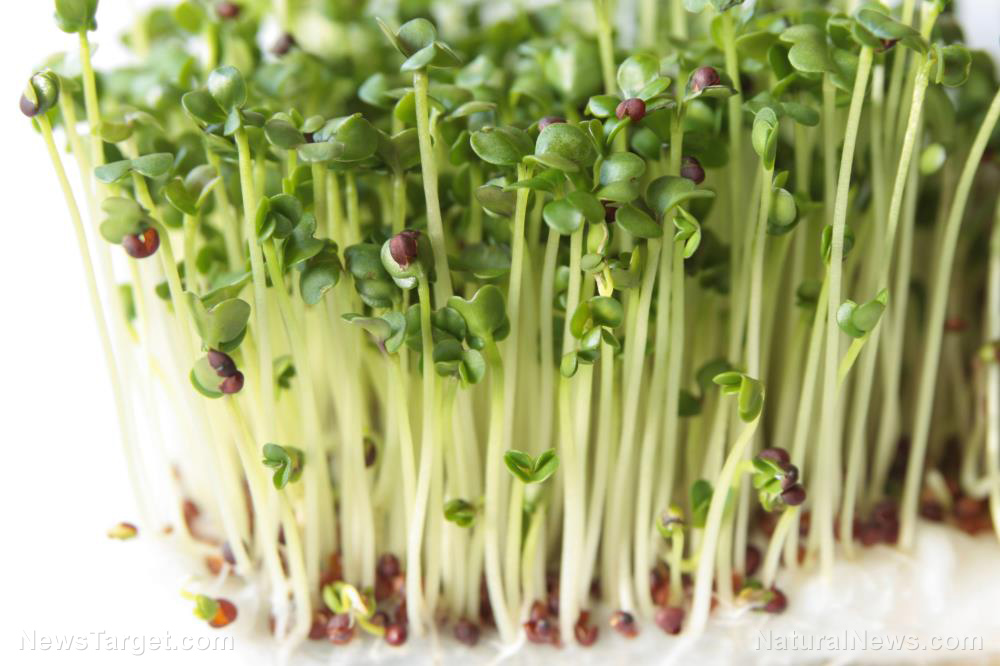Research suggests curcumin from turmeric can help with IBD symptoms
01/27/2023 / By Zoey Sky

Digestive issues like bloating and cramping are common, but if you have inflammatory bowel disease (IBD), your symptoms are more severe. IBD symptoms can even be life-threatening.
There is no mainstream cure for IBD, and treatment options range from pharmaceuticals like steroids and immunosuppressants. Following specialized diets and taking herbal nutraceuticals can help if you have IBD.
According to data presented at a Crohn’s & Colitis conference, curcumin, the active anti-inflammatory compound in turmeric, also offer benefits for people with IBD.
New developments in IBD treatment options
The latest study findings presented at the 2023 Crohn’s & Colitis Congress included these three new developments in treatment options for IBD:
Treating Crohn’s disease in oxygen chambers
A meta-review of the use of hyperbaric oxygen revealed that this therapy was effective at reducing inflammation. Data showed that the treatment helped improve symptoms among study participants.
Predicting IBD flares with an Apple Watch
Experts found that the nervous symptom markers measurable on wearable devices like the Apple Watch can help predict IBD flares. The ability to predict these flares can help patients start their treatments earlier, which makes them more effective. (Related: Study: Ultra-processed foods linked to increased risk of developing inflammatory bowel disease.)
Plant-based therapy against ulcerative colitis
A combination treatment of two herbal compounds, curcumin and Qing Dai, an herbal formula popular in Chinese medicine, was found to be “significantly more effective at reducing symptoms” compared to a placebo in people with active ulcerative colitis.
Alternative, herbal and plant therapies have been taken seriously and studied for more than a decade as treatment options for those living with IBD. These new findings can also be used to bolster modern medicine’s approach to disease in general.
Studies, like those presented at the 2023 Crohn’s & Colitis Congress, also highlight how beneficial additional options and complementary therapies can be.
Health benefits of curcumin
Even if you don’t have inflammatory bowel disease, using herbal compounds like curcumin offers some health benefits.
Consuming curcumin from turmeric can also provide joint comfort and support the immune system. The compound can also help boost your digestive health.
Note that turmeric has low bioavailability, which means using the spice while cooking may fall short if you want to enjoy its therapeutic benefits.
To boost your overall health, it is recommended to take a supplement specifically formulated for your needs. Always use quality supplements that are recommended by experts.
More information about IBD
Inflammatory bowel disease (IBD) is the term for two conditions, Crohn’s disease and ulcerative colitis, that are characterized by chronic inflammation of the gastrointestinal (GI) tract. Prolonged inflammation causes damage to the GI tract.
Here are the common symptoms of IBD:
- Abdominal pain
- Fatigue
- Persistent diarrhea
- Rectal bleeding or bloody stools
- Weight loss
The exact cause of IBD is unknown, but the condition is often the result of a weakened immune system. One possible cause of IBD is when your immune system responds incorrectly to environmental triggers like a virus or bacteria, which will then lead to the inflammation of the gastrointestinal tract. IBD might also have a genetic component. If you have a family history of IBD, you are more likely to develop the condition.
IBD is diagnosed by:
- A combination of endoscopy for Crohn’s disease or colonoscopy for ulcerative colitis, along with imaging studies like contrast radiography, computed tomography (CT) and magnetic resonance imaging (MRI)
- Blood tests
- Stool sample
Tips for incorporating turmeric and curcumin into a balanced diet
While it remains to be seen what the optimal dose of curcumin is, consuming turmeric through your regular diet may still offer some benefit. According to data, combining turmeric with black pepper can significantly enhance absorption.
Piperine, black pepper’s signature compound, helps boost the absorption of turmeric by an impressive 2,000 percent.
Add more turmeric to your diet and use it in foods like:
- Curries
- Oatmeal or cream of wheat
- Rice
- Roasted vegetables
- Scrambled eggs and frittatas
- Smoothies
- Soups
- Tomato sauce
Nutrition tips for IBD
No specific diet has been shown to prevent or treat inflammatory bowel disease, but some diet strategies can help you manage IBD symptoms.
To identify problem foods, keep a detailed record of what you eat. Take note of when symptoms worsen to help you identify patterns that indicate which are your problem foods.
There are different approaches to diet during flares and in the absence of flares. Regardless of your health issues, it’s best not to overly restrict your diet.
Focus on avoiding problems foods and eating nutritious foods.
Diet recommendations for ulcerative colitis flare
Avoid foods that may increase stool output like fresh fruits and vegetables, prunes and caffeinated beverages. Decrease your alcohol consumption or avoid it completely.
Limit or avoid concentrated sweets in your diet like candy, juices and soda. This will help decrease the amounts of water pulled into your intestine, which may cause watery stools.
Incorporate more omega-3 fatty acids in your diet. Omega-3s have an anti-inflammatory effect and you can get them from fatty fish like herring, mackerel, salmon and sardines.
Some patients reported that smaller, more frequent meals are better tolerated. Improving your eating habits can also help increase the amount of nutrition you receive every day.
If you have a poor appetite and trouble tolerating solid foods, consider taking nutritional supplements.
Diet recommendations for Crohn’s disease flare
If you have strictures, avoid beans, kernels, nuts and seeds. You should also avoid foods that may increase stool output like fruits and vegetables, prunes and caffeinated beverages.
Eating cold foods may help reduce diarrhea.
If you are lactose intolerant, follow a lactose-free diet. Lactose intolerance causes symptoms like bloating, cramping, gas and diarrhea 30 to 90 minutes after eating milk, ice cream or large amounts of dairy. Take a breath hydrogen test if you think you have lactose intolerance.
If your stools are oily and foul-smelling, fat malabsorption could be the culprit. Treat fat malabsorption by following a low-fat diet. Discuss your symptoms with your doctor or a nutritionist.
Take smaller, more frequent meals because they are better tolerated and can help maximize your nutritional intake.
If your appetite is decreased and you have trouble keeping solid foods down, you might benefit from taking nutritional supplements.
Follow a balanced diet, avoid problem foods and incorporate turmeric into your diet to boost your digestive health and overall well-being.
Watch the video below to find out why you should combine turmeric and black pepper.
This video is from the Health Ranger Store channel on Brighteon.com.
More related stories:
It turns out, having a healthy gut can make you “fear less.”
Promote gut health with these 4 powerful spices.
Kurogane holly contains anti-cancer compounds for IBS patients.
Sources include:
Submit a correction >>
Tagged Under:
alternative medicine, curcumin, digestion, digestive health, food as medicine, food cures, functional food, herbal medicine, Herbs, IBD, inflammatory bowel disease, natural cures, natural health, natural medicine, plant medicine, remedies, turmeric
This article may contain statements that reflect the opinion of the author
RECENT NEWS & ARTICLES
COPYRIGHT © 2017 ORGANICS NEWS




















